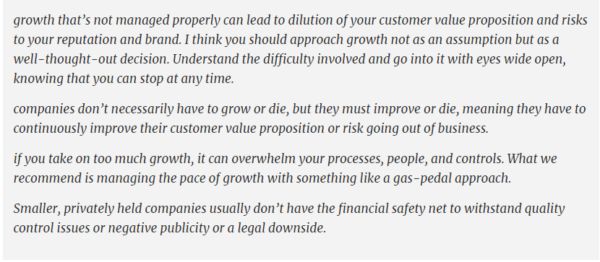Startup founders are becoming a lot like bloggers, and I’m saying this because most of my working life I’ve worked with these two, and SaaS startups are needlessly failing.
Bloggers often approach their businesses with a fun mindset rather than a business mindset, doing everything alone and hoping to break through one day.
Thanks to Adam Enfroy for calling out this faulty line of thinking, and demonstrating why it’s better to approach your blog like a CEO rather than a blogger.
What’s surprising, however, is the number of SaaS founders who don’t care about hiring the right team these days. They adopt the “if you build it, they’ll come” mindset, forgetting that there is more to building a startup than programming skills.
It is unarguably true that the most important aspect of building a SaaS brand — or any business at all — is to offer a great product, but how do you plan to scale in a world where you have to take on nine competitors with varying levels of capacity without great talents and experts?
But enough of the small talks. Let’s put this in context.
Here is why hiring great talents matters
Removing the guesswork
The Internet has tremendous power when it comes to gaining traction, for a SaaS brand, it’s especially advantageous — you can learn a lot of things at the click of a button, you can reach your audience, you can blow the trumpet of your product.
The problem with this line of thought is that:
- You are not an expert in all of these things and you probably don’t know what you are doing.
- Your productivity will drop monumentally as you try to be everything at a time.
The guys at BOHECO learned this the hard way after spending two days deciding on a brand logo.
The point is: without specific experts doing a specific thing, you risk killing your business before it even takes off.
You might point at the outliers and cite the PayPal guys, but these were in the days when the tech ecosystem had not yet matured; they did not have to deal with tough regulations, they did not have to pay for a lot of software, and the competition wasn’t nearly as tough.
Competitive advantage
Earlier, I cited a finding on the number of competitors you have to deal with as a startup in the 2020s.
Each of these competitors is really out there to get you, and they are here to steal your customers.
If you have to keep your eyes on too many balls at a time, you are giving them a hand to defeat you.
If your strength is in product development, then let someone else handle sales and another person do the marketing.
Trying to do everything on your own will take a toll on your productivity and your SaaS business may flounder.
Businesses die these days faster than you can blink — that’s if they don’t have competent hands driving it forward.
Three indispensable hires for a SaaS startup
A marketing and sales team
Make no mistake, growth hacking is no longer optional for tech startups, it’s the only bulwark you have against your business dying an untimely death.
As growth hacking grew though, one truth grew with it: software businesses either grow fairly quickly or die really fast.
This further means you have no room for guesswork. You either bring a marketer who knows how to bring your users in or you risk losing your business to the competition.
Here is Tim Berry, a tech entrepreneur and founder of BPlans, reminiscing on some marketing risk he took in 1996 while his colleagues were showing hesitations.
In an article titled Is Your Business Either Growing or Dying, Berry went on to quote one of the most eloquent contributions on this matter. In an interview with Business Week, Hess says:

The keyword here is. “You should approach growth not as an assumption, but as a well-thought-out decision.”
And by the time you factor in positioning, communicating value props, analyzing user behavior and onboarding data, channel decisions, and a gazillion order ingredients of growth, you’d realize why it’s a serious blunder not to have a marketer and salesperson on your startup team from the onset.
Accountant
Money is an indispensable consideration in startup success, and so is the process of how the beans are counted; the thorny matter of tax calculation; managing the payroll operation; and so on.
I have been in the business world for a while, and I can’t see how any successful business can be successful without an accounting expert to balance the book.
Let’s take a cursory glance at why it matters.
Two reasons why you must hire an accountant on time:
Maintaining trust with investors
Investors wouldn’t leave their money with you unless they are sure of its safe return. So, they follow what is known as GAAP, which stands for Generally Accepted Accounting Principles, to weigh a company’s financial integrity.
And it takes an accountant to keep you compliant.
Speaking on why the GAAP is important, Investopedia says, “GAAP is important because it helps to maintain trust in the financial market. If not for GAAP, investors would be more reluctant to trust the information presented to them by companies because they will have less confidence in its integrity.”
Avoiding clash with the regulators
There are more regulations in accounting than what a non-expert can handle. And the lack of this knowledge or/and deliberate attempts to ignore the rules often bring startups to a brutal fall. And we have seen this before.
The Enron Scandal is one of the most horrific crashes in Wall Street history. In a piece about the role of an accountant, Vista College dissected some of the reasons why Enron fell and found off-the-books accounting practices as the leading cause.
If you have read about Enron and what analysts are saying, you’d understand why it’s preposterous to launch a SaaS business without getting an accountant on board. There is more focus on tech startups these days than any other industry when it comes to financial matters.
Data manager
You already know about the growing concerns about privacy among tech users. This concern is not without basis.
From Alibaba to Yahoo! to Facebook, data breach continues to breed embarrassment and mistrust for (big) tech.
And it isn’t just the government authorities that are pushing regulations to control data acquisition and usage but also users, as well as institutions you can’t do away with, are paying more attention to data these days.
Take a look at Apple’s updates on its new devices and Google’s new anti-third-party cookie policy and you will see where this is all going: the issue of data can now make or mar your SaaS business.
Besides, the need for data protection has also stirred many regulations, new business models, and corporate initiatives. We now have Google’s FLoC, HIPAA compliant hosting (Read up to see if it applies to your business as this is not for everyone), and unprecedented growth in the adoption of SSL certificates.
But it’s not enough to just know about these things as a layman. You need an actual scientist in the area of data management. And it would be unwise to assume you don’t need a data manager while other companies are paying them about $ 104,000 annual salary on average, according to a finding by TechTarget.
No one pays that amount of money if they don’t have to.
Conclusion
So, you wonder: why did I not mention engineers, product managers, back-end and front-end developers?
The answer is quite straightforward. If you don’t have all of these, you can’t build a SaaS product in the first place.
Whether you hire any of them or it’s just you and your co-founder that have these skills, it goes without saying that it takes these team members to build anything tech.
But with the rate at which businesses, especially tech, are failing, it’s important to remind ourselves of important hires you may likely not pay much attention to. Do not overlook any of these hires if you want to have a thriving business.
Business & Finance Articles on Business 2 Community
(18)








